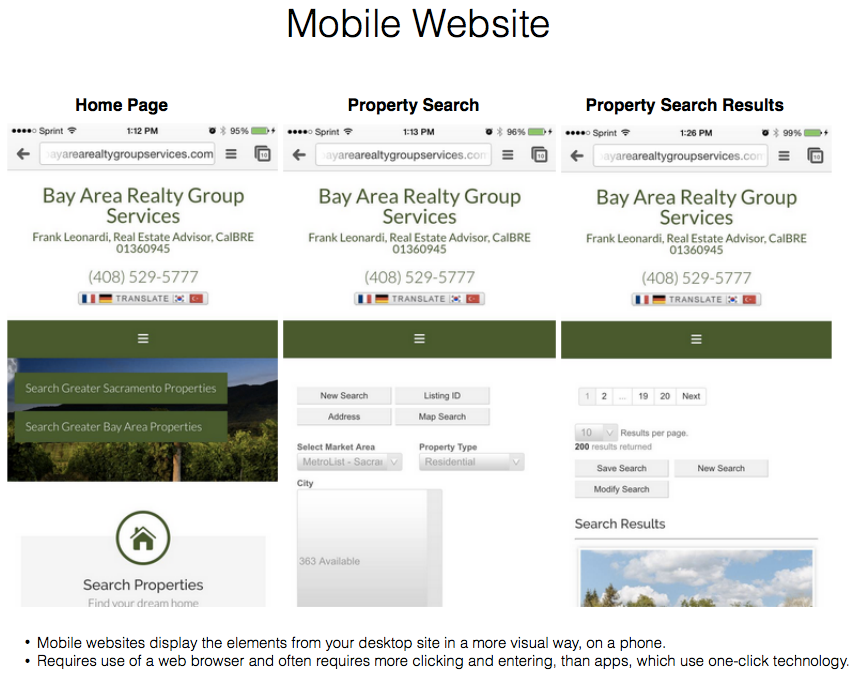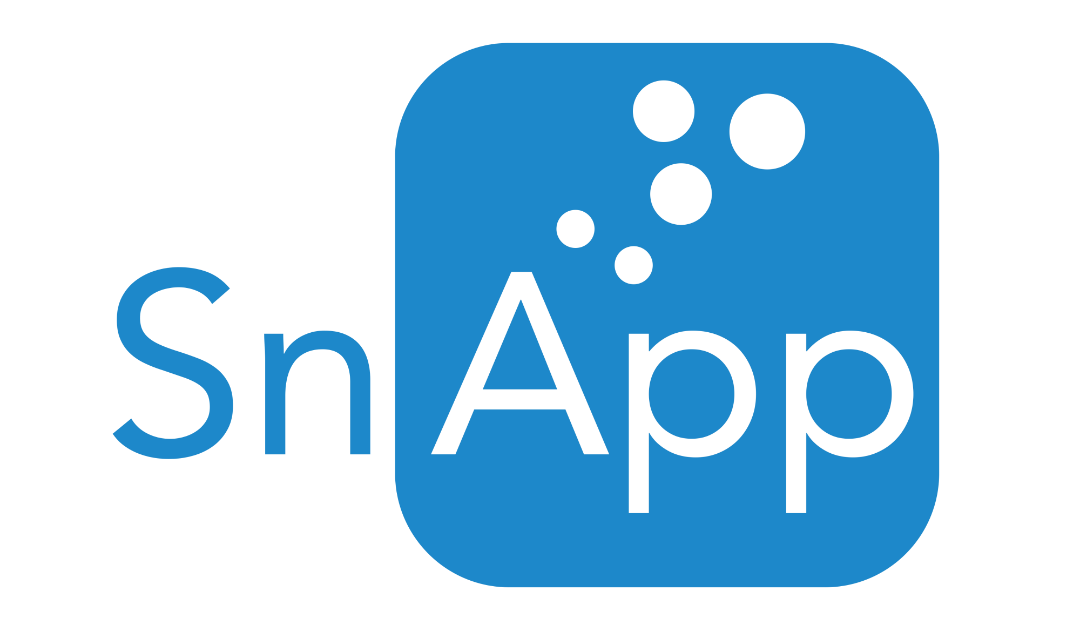Mobile sites are used to let mobile website visitors know that they are in the right place. They are essential for search engine positioning, website conversion (lead generation), and will be an absolute necessity for the foreseeable future. However, mobile websites do not offer the same functionality that mobile apps do. Scroll down to find out more.
Get your own Mobile App Today. Try it out!

What are some of the main differences between a mobile web site and a mobile app?
Scroll (mobile sites) vs. swipe (app) , interactive maps, and the ability to exist on a customer’s phone throughout their home purchase, are just scratching the surface.

Get your own Mobile App Today. Try it out!
More on Mobile Websites vs. Native Apps
See Video Example
A native mobile app is an application that is directly installed onto the mobile device. Native apps are typically found online or at the App Store. Its strengths include interfacing with the mobile device’s features and information. It also typically performs faster than mobile websites, and allows for faster and easier access regardless of location and carrier network access.

Mobile Website for Real Estate Agents:
A mobile website is accessed through the mobile device’s web browser. Mobile sites are internet accessed with specific functions for phones. A web app has a common code base across all platforms and all users are on the same version. Downfalls to the web app include higher costs to support multiple web browsers, and the inability to access all the device features. Mobile App for Real Estate Agents:
Why Create A Native Personal App?
According to a recent blog post by Nomad Mobile Guides, organizations that offer both a mobile website and native apps typically see 4-5 times more usage with the native apps over the mobile website. The site lists out things real estate agents might want to consider, hitting on the strengths of personal native applications:
- Claim and control your message
A native application is significantly easier for a visitor to find on their device compared to a mobile site that is typically buried as a bookmark within their browser.
- Richer user experience
A native application can contain highly interactive features that go well beyond what is possible with a web site. The native application has access to the whole library of user interface controls supported by the device that can be combined to produce unique and compelling user interfaces to engage the user.
- Application speed
A native application has everything pre-installed on the device and is able to run as fast as the device allows creating a great user experience. A mobile web site has to interact with the web server through the data network and is inherently slower.
- Interactive Maps
A mobile website that uses Google’s online mapping services is restricted to five different icon types, or it must use a more dynamic but significantly slower method for building the map. A native application is able to use the mapping library built into the device. For example, Snapp Real Estate app’s main function is geolocation, gps, and interactive mapping.
- Streamlines Interaction
A native app can help you streamline your sales processes. Customers can efficiently contact you directly by texting or messaging about listings seen that day. A native app gives you more personal features, resulting in higher conversion rates.
For more info about how SnApp can build a native mobile app for your real estate business, click here.
